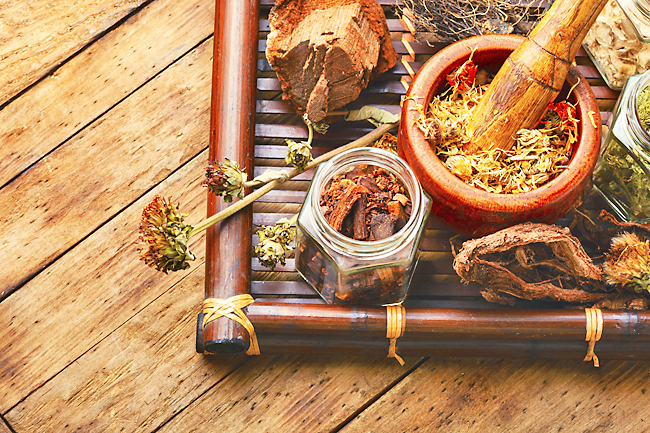Rizal Faisal
Brunei has a rich biodiversity and a potential treasure trove of medicinal drugs, as it has an abundance of natural flora covering a large portion of its land.
Much of the well-preserved natural flora is still left untouched and contains invaluable biomedical information waiting to be discovered.
Advancing knowledge through herbal research may help facilitate the discovery of therapeutic drugs and novel treatment to manage significant health issues.
These points were highlighted by a group of researchers from Universiti Brunei Darussalam Herbal Research Group, including Dr Anne Catherine Cunningham, Pengiran Dr Hajah Nurolaini binti Pengiran Haji Muhd Kifli, Dr Muhammad Hazim Abdul Ghani, Dr Siti Rohaiza Ahmad and Nur Izzah Bungsu.
The research team recently had the opportunity to study Bruneian herbal leaves identified as Daun Kurap, Simpor Bini and Kulimpapa.
Based on their findings, the team said that that these leaves can be ingested raw, cooked, or in the form of decoction, poultices, infusions or pounded pastes that are then consumed orally, applied topically or used in herbal baths.

“Traditionally, these herbal leaves have been used to treat known and unknown diseases as an alternative to modern medicine,” the team said.
The team proceeded to share that with emerging diseases, there is an increased trend to revert back to the knowledge of traditional medicine, with hopes to discover novel biological activities within these plants, with a vested immunological interest in the environmental sensor that can respond to molecules, such as phytochemicals found in herbal plants.
“Plants have been used for their medicinal properties for many years,” noted Associate Professor Dr Anne Catherine Cunningham, a lead for the research project, who is a senior immunologist with many years of experience in the United Kingdom (UK).
“The thing that struck me is the gap between herbal research and the very important field in immunology, which is understanding an environmental sensor called the Aryl hydrocarbon receptor (AhR),” she said.
Dr Cunningham described AhR as an interesting environmental sensor due to its central role in response to a wide range of molecules.
“AhR is capable of sensing various environmental stimuli including xenobiotics and tryptophan metabolism, from dietary and microbiome sources, which has intrigued many immunologists for many years!” said Dr Anne.
“However, it has now become appreciated that molecules capable of interacting with AhR extend beyond these group of particles, which include phytochemicals found in herbal plants,” she added.
The research team studied the effects of flavonoids, which is a group of phytochemicals found abundantly in the herbal leaves.
As co-researcher of the herbal study and budding local immunologist Dr Muhammad Hazim Abdul Ghani explained, “Flavonoids can be found in herbal plants and share similar structures with AhR. Yet there has not been much link between herbal research and the study of AhR.”
In the study, the researchers pre-treated primary human lymphocytes obtained from healthy blood donors with the herbal extracts to determine their effects on immune responses.
The main researcher of the study, Nur Izzah Bungsu, who is a Masters student at Pengiran Anak Puteri Rashidah Sa’adatul Bolkiah Institute of Health Sciences (PAPRSB IHS), shared from her preliminary study work that herbal leaves have the potential to interact with the environmental sensor expressed in primary human lymphocytes to either promote or inhibit immune responses.
Meanwhile, as one of the leads of the herbal research project, Pengiran Dr Hajah Nurolaini binti Pengiran Haji Muhd Kifli expressed her hope for more researchers to participate or collaborate in herbal research.
“I hope more researchers will be interested to explore herbal plants as a medicinal value and we can provide evidence on how it is beneficial to health or as treatment,” she said. “I hope we can also work with the community to exchange knowledge and skills in herbal medicines.”
Overall, the research showed that natural sources have the potential to impact health and disease.
“This warrants more scientific investigation to fully understand how herbs may promote health or/and prevent disease,” said the team. “The local community also plays a crucial role in herbal research by disseminating information known for many generations to increase awareness and further boost herbal studies in Brunei.”







